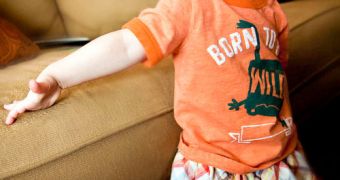Adults apparently have different degrees of credibility in the eyes of infants, scientists explain. In a new study, it was determined that children carefully select who they imitate, even though the behavior comes naturally to them.
Until now, it was believed that babies would copy the behaviors of whomever they came in contact with. However, the new data indicate that this is untrue, and that babies assign different values of credibility to different adults.
In the study, it was demonstrated that children who are exposed to either unreliable or dishonest behaviors from adults become less likely to imitate that particular individual. Mimicking is one of the most important ways of learning for humans.
In a series of experiments, researchers determined that about 61 percent of children imitated their “assigned” adults, if the latter proved to be reliable in previous scenarios. Only 34 percent of infants imitated adults that proved themselves unreliable in previous tests.
The investigation was carried out on infants aged 13 to 16 months. They were divided in two groups, one assigned to a trustworthy experimenter, and the other to an unreliable one. When children in the first group imitated opening a box, they found a toy inside.
When kids in the second group did the same, they found the box empty. The experimenters then activated a push-on light using their forehead, and expected the kids to imitate them. Two-thirds of the infants in the first group did so, while only a third of the second group followed suit.
“This shows infants will imitate behavior from a reliable adult. In contrast, the same behavior performed by an unreliable adult is interpreted as irrational or inefficient, therefore not worth imitating,” Concordia University Department of Psychology researcher Ivy Brooker explained.
“Like older children, infants keep track of an individual's history of being accurate or inaccurate and use this information to guide their subsequent learning,” investigator Diane Poulin-Dubois added.
The expert, a researcher on the new study, holds an appointment as a professor with the Concordia University Department of Psychology. She is also a member of the Center for Research in Human Development at the university.
“Specifically, infants choose not to learn from someone who they perceive as unreliable,” the expert adds. Details of the study were published in a paper appearing in the April issue of the scientific journal Infant Behavior and Development, LiveScience reports.

 14 DAY TRIAL //
14 DAY TRIAL //